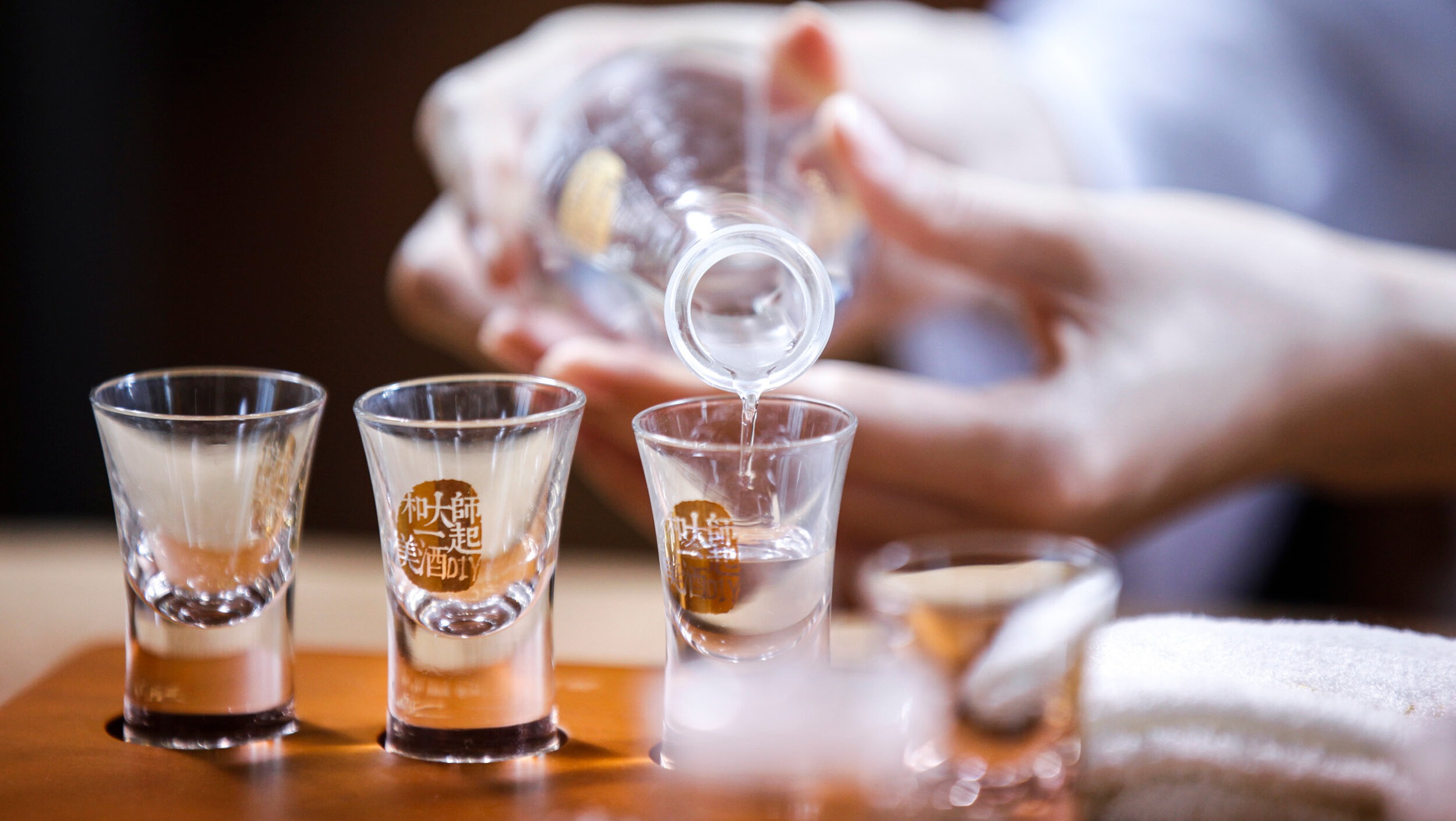Baijiu is the world’s most consumed and best-selling spirit
If you have not yet been to China, the chance that you have heard of or event tasted Baijiu is close to ZERO. Because each year 17 billion liters of baijiu produced every year, only 20,000 liters are exported from its native China, according to the country’s National Information Centre of Customs General Administration. You might have not heard of it, but its importance is not negligible.
Kweichow Moutai is the largest producer of baijiu and the world’s most valuable liquor company – with a market capitalization of more than $145 billion. While Diageo, a British company that owns some of the world’s famous liquor brands, has a market capitalization of $93.3 billion.
What is Baijiu
Baijiu is a transparent liquor that has an alcohol content between 35% to 60%. Each type of baijiu uses a distinct type of Qū for fermentation unique to the distillery for the distinct and characteristic flavor profile. The literal translation of Baijiu (白酒) is White Liquor (wine). Bai (白) means white, and Jiu (酒)means liquor or wine. Now you learned two Chinese words. According to Wikipedia, Baijiu is a clear liquid usually distilled from fermented sorghum,[citation needed] although other grains may be used; some southeastern Chinese styles may employ rice or glutinous rice, while other Chinese varieties may use wheat, barley, millet, or Job’s tears (Chinese: 薏苡 yìyǐ) in their mash bills. The qū starter culture used in the production of baijiu is usually made from pulverized wheat grain or steamed rice.
Why is it an essential part of Chinses culture
Baijiu has been part of Chinese history since Neolithic Age. The first systematic distillery process started in Han Dynasty (202 BC-220 AD). It is widely popular in gifting, celebration banquet, and business dinners.
On Chinese new year or special occasions, people give Baijiu to each other as new year gifts. In wedding celebrations or family reunions, you will find Baijiu on each table. The newly married couple will toast to guests at each table with Baijiu. In business dinners, drinking Baijiu, a lot of Baijiu is a tradition to build trustworthy business relationships. It is believed that people show their true nature when drunk, probably this belief leads to the habit of drinking lots of Baijiu at business dinners. Besides domestic consumers often drink at home or with some friends at the dinner table. Baijiu is everywhere, for every occasion.
Baijiu prices
A bottle of premium Baijiu could cost more than $400. Certain ranges of the batch cost consistently more than $100 per bottle. For daily consumptions, an average bottle of Baijiu costs $10 to $20. For gifting or special occasions, premium Baijiu is the number one choice.
I searched Baijiu on JD.com, there are hundreds of Baijiu and special brew types, packaging, alcohol contents. The FX of CNY to USD is about 1: 0.15. The pictures below show the prices between $40 to $300 per bottle. There are much cheaper ones that cost only few dollars, but way less popular.
Baijiu Index
Baijiu Index consists of major Chinese Baijiu distilleries’ shares and it is an index that is tracked by a couple of Baijiu ETFs. For example, ICBC Baijiu Index ETF has achieved 194.86% in the last 3 years, 132.51% growth in one year, 69.37% in 6 months, 42.55% in the recent 3 months. The screenshot below is from Alipay Investment App data. You probably have noticed that in China, positive performance is highlighted in red, negative performance is highlighted in green, quite the opposite as in Europe and the US.
132.51% growth in 1 year
Performance by time from the most recent week till since inception
What does the photo above tell us? The fund has rendered a 5 fold return in 5 years!
It might be interesting for you to know there is such index in China. Will your invest in this ETF? Is there any interesting index in your country?
I would encourage everyone have a taste of Baijiu, it has a distinct aroma . For the first time, it will ‘burn’ in your mouth.
Share this post






Latest Blog Posts
Money Mindset
Our cost of living in Switzerland for a family of three – 2024 Review
Read MoreMoney Mindset
January Expense for a Family of 2 in Switzerland
Read MoreMoney Mindset
How To Calculate Your Net Worth Correctly for Early Retirement
Read More